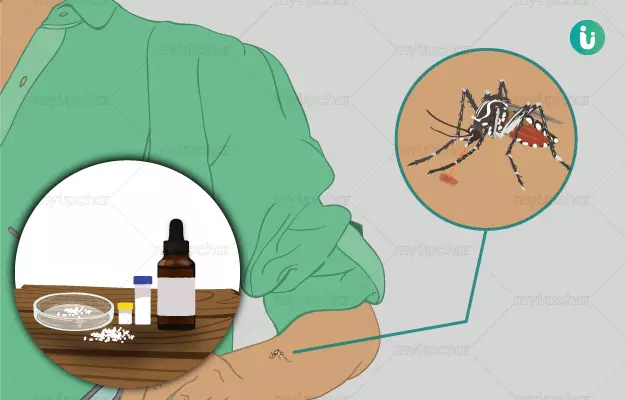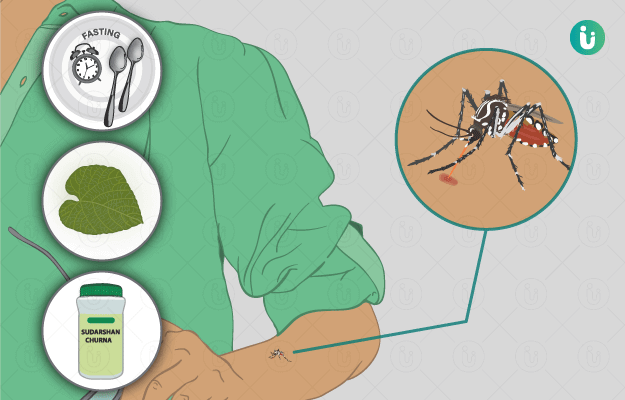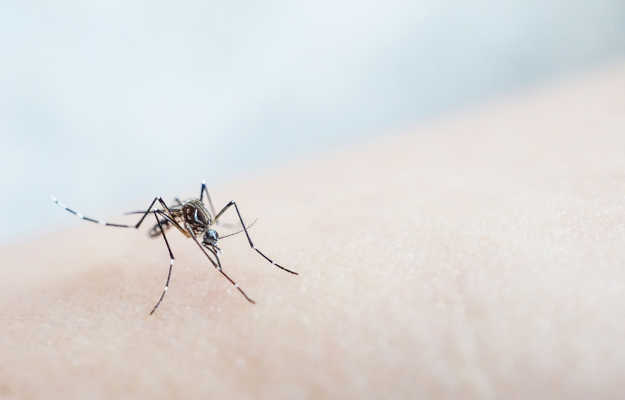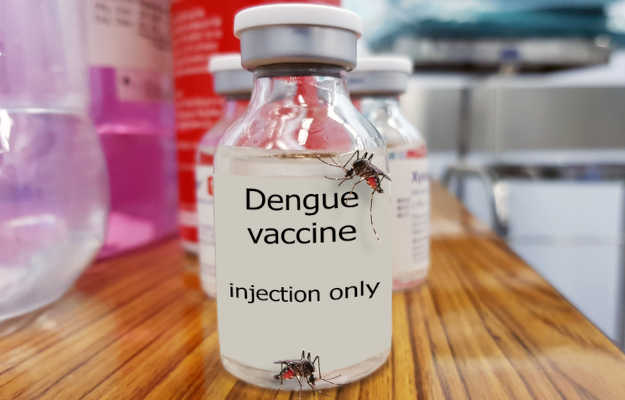Dengue is a viral infection caused by flavivirus of 4 different species. The viruses are transmitted by the bite of Aedes aegypti and Aedes albopictus mosquitoes and take about 4-7 days to show symptoms.
The signs and symptoms of dengue vary according to the severity of the disease and the infecting strain. Most cases of dengue are mild and show symptoms such as muscle pain, joint pain, rashes all over the body, which may seem to fade away and then reappear, high fever, severe headache, pain in the eye sockets, nausea and vomiting, mild bleeding from nose or gums and decrease in the white cell count.
Dengue haemorrhagic fever is a severe form of dengue wherein the patient experiences bleeding from the mouth, gums and nose; clammy skin; damage to the blood vessels, which leads to internal bleeding and black vomit; decrease in the platelet count; and weak pulse. They may be mild at first but worsen within a few days.
Dengue shock syndrome is a life-threatening form of dengue, which manifests in the form of heavy bleeding, vomiting, severe stomach pains, disorientation and sudden drop in blood pressure. It is possible to have dengue fever more than once.
Since dengue symptoms tend to be similar to the symptoms of flu and other seasonal diseases, it could sometimes delay the diagnosis of the disease. However, if a doctor suspects dengue after an examination of the physical symptoms of a patient, then he/she orders blood tests to confirm the diagnosis.
Treatment mostly includes symptomatic management, so, prevention is the best way to be safe from dengue. Preventive measures include mosquito repellents and suitable clothing to cover the exposed areas of skin to avoid mosquito bites and the spread of infection.
Homeopathy is a holistic mode of treatment that aims at improving the overall health of an individual rather than focussing on symptomatic management alone. Homeopathic remedies commonly used for the treatment of dengue include arsenic album, bryonia alba, lycopodium and belladonna.
(Read more: Dengue diet)
































